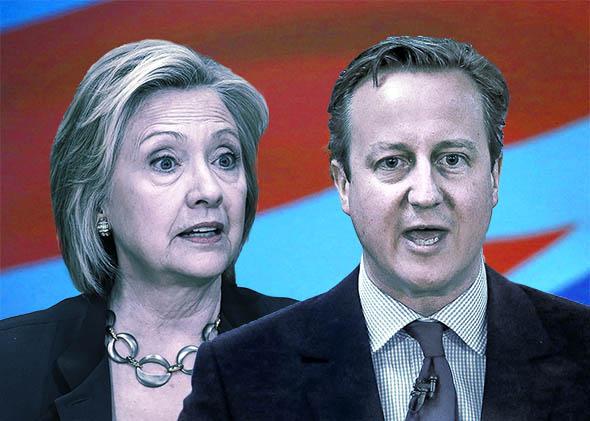LONDON—Every once and a while, it’s worth pausing to ponder the relative merits of different kinds of democracy. Just consider: This week, Hillary Clinton published a two-minute video and launched what will be a grueling 18-month campaign. Also this week, the main British political parties published their longish, wonkish election manifestos, and launched the final three weeks of a general election campaign that began three weeks ago.
What will the voters get out of these very different political experiences? Between now and the May 7 election, the British debate—the most insular I can ever remember—will focus squarely on the nitty-gritty of taxes, spending, and the costs of things promised in those manifestos. The Tories have offered more childcare and home ownership, so for the past few days the newspapers and the opposition have been running the budget numbers to see if they add up. Labour has promised to abolish a notorious tax loophole, and journalists and opponents have been pricing that promise, too.
In the United States, we won’t get close to that level of detail. Instead, we will have a long national debate about “who we are” and “what kind of nation we would like to become.” When we had a black candidate, we spoke about race in America. With a female candidate, we will talk about women in America. Since there are Hispanic candidates, we will talk about the rise of Hispanics, too.
Because there are Clintons and Bushes involved, we will also talk about nepotism, inherited wealth, and plutocracy. If Wisconsin Gov. Scott Walker runs, we might get into the role of public-sector unions. Because at least one candidate is a former secretary of state, we’ll also spend a good deal of time on foreign policy victories and failures.
Speaking as a long-standing producer and consumer of political journalism, I feel exhausted by the American campaign before it has even really started. This biases me toward the British model, so tidy and containable. Also, the whole thing will cost so much less: During the last general election, the two main British parties spent some 25 million pounds, or $37 million. By contrast, the Democrats alone will raise a billion dollars before the U.S. election cycle ends. When you add the various Republican campaigns, plus all the House and Senate campaigns, the price will be a few billion more. Think what else one could do with all that cash.
And yet—George Orwell warned more than 75 years ago that it’s always wrong to assume “human beings desire nothing beyond ease, security and avoidance of pain.” As Britain’s current fascination with Scottish nationalism and anti-Europeanism reveals, modern voters—even British voters—can still be motivated by emotional discussions of nation and identity. The “traditional” parties are ignoring this at their peril. Their narrowly focused, inward-looking dialogue carries another risk, too. The British political class may have decided to ignore the outside world, but the outside world will surely find ways of forcing itself upon Britain anyway.
I don’t know how uplifting the discussion of foreign policy will be in the U.S. presidential campaign, but at least it will happen. I don’t know whether the emotions raised will be particularly edifying, either, but at least they will be aired. Myself, I don’t think I can vote for any Western politician who doesn’t have a policy to counter ISIS or Vladimir Putin, hasn’t really confronted the emotions dividing so many Western democracies, and can’t find a way to bring alienated voters back into the fold. Compared to those threats, tiny changes in tax policy hardly matter. It would be nice to inject some British brevity and thrift into the U.S. campaign. But I also wish I could import a little bit of American grandiosity and extravagance to Britain.
